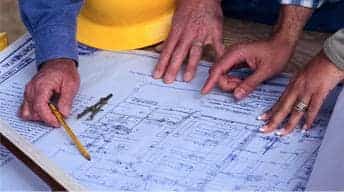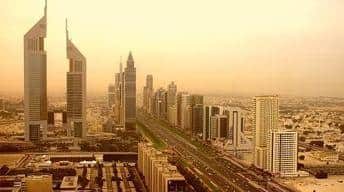Anti-Bribery Laws in Kuwait
The Middle East, and more specifically Kuwait have massive infrastructure developments and plans underway which is government related and done by significantly issuing government contracts. The nature of the construction Industry is as such that acquiring of goods and services and choosing the suppliers and the contractors is the decision of an individual; An individual who can be profoundly influenced for winning opportunities, on a large-scale project makes bribery a significant issue in this industry. Globally, the procurement segment in the construction industry is where the majority of corruption takes place. As stated in the annual report of the World Economic Forum (WEF) in context of the annual corruption index, corruption was identified as one of the significant issues. Posing as a deterrent for foreign businesses to invest in the region of Kuwait. The criteria and the norms of the Government bidding system are uncertain in the area that ignores the requirements of qualification and performance, which does not ensure equality of opportunities and transparent competition.
Corruption is an issue that requires both international and national efforts to reduce the negative effect that it has on an economy of a nation. There are various forms of corruption, which takes place in the way of violating rules, abuse of power or taking advantage of loopholes in the regulations and provisions of law. Bribery is also an example and a form of corruption. As defined in the Black Law’s Dictionary, Bribery is the act of offering, giving, receiving, or seeking of any item of value to influence the actions of a person or an authority in control of a public or legal duty. Bribery is punishable in Kuwait according to Articles 35 to 43 of the Kuwait Penal Code of 1970. In addition, “Corruptibility'' is punishable in Kuwait according to Articles 11 and 12 of the Protection of Public Property Law. Recently In an effort to attract foreign investors, Kuwait has introduced Law number 49 of 2016 (New Tenders law). It is a step towards fair competition.
The Kuwaiti Protection of Public Property Law
In The Kuwaiti Protection of Public Property Law, article 11 and 12 refer to public authority acting for the government, public bodies, state, institutions or companies in which the individual has a participation of minimum 25 percent. Additionally these individuals are forbidden to demand, receive or accept any gift in any transaction of the previously mentioned institution.
Such an offence is punishable under the act by imprisonment for a period of at least seven years. Additionally,
-
A penalty by payment of the amount double of which was, acquired as a benefit
-
Dismissal of the individual.
Kuwait Penal Code of 1960
Article 116 of the Kuwait Penal Code of 1960 expresses that bribery shall also count for any coercion on a public authority to receive from the public authority, what the individual agitating is not entitled to.
New Tenders Law
As stated in Article 55 of the New Tenders Law, if it is proven that there is collusion between tenderers or individuals related to the tender; the tender will be cancelled with a reasoned decision of the Board of the Agency.
As stated in Article 85 the penalties signed by the board on the suppliers and the contractors are by notice, decreasing the category and dismissing from the Registry and no participation for a period of a maximum of 5 years or also removal from the Registry permanently.
Article 79 of the New tenders Law set downs the regulations for the jurisdiction of the cases.
-
The General Assembly of the Court of First Instance shall regulate a courtroom or more rooms of the administrative circuit, with the proficiency to consider the cases related to the public tender (and alike) of the public procurement affair, and what is associated therewith and can be subdivided therefrom of administrative disputes.
-
In the Court of Appeal, a specialized circuit or more shall be arranged, to consider the appealed judgments issued by the administrative circuit referred to above. The verdict shall be conclusive, and may not be challenged by any method of appeal.
-
The court of First Instance shall mandate one or more judges to adjudicate on a temporary basis. Without prejudice to the origin of the right, in the matters which include fears of the passing of time, related to the cases and disputes referred to in the first paragraph, as well as temporary execution complaints, and issue orders on petitions and temporary orders, and the payment orders relating thereto.
Civil law, Commercial Procedure law, and its corresponding Laws shall be applied to the cases, which are filed under the regulations of this law unless a provision for the same is specifically mentioned.
Glossary
-
Gift: Just not promises and gifts even every Interest, material or immaterial.
-
Collusion: any act between two or more individuals before or after the bid, intending to achieve an unlawful purpose. The actions include:
-
The influence on the illegal acts of another party, or for;
-
The granting of the procurement contracts between bidders, or;
-
To learn the bidding prices in non-competitive and artificial levels, with an intent to deprive the relevant authority of the advantage of free and open competition.
-
Bid: A commitment issued by the supplier, contractor or undertaker at the invite of a public authority or its declaration. It incorporates technical, time and financial statement for the things, for which it is essential to contract (items – Construction – ordinary Services) inconsistency and fulfillment of the documents of an offering.
-
Alternative Bid: It is not the same and an alternate bid which differs in the technical framing than the submitted original tender, for cause beyond the control of the bidder, force majeure, or non-availability of a minimum of manufacturers, provider or suppliers, not less than the technical framing offered in the tender and be orderly with the declared terms.
-
Contracting: The works for construction of buildings, structures or facilities, rebuilding, renovation or restoration of the same, such as fashioning of the site, excavation, and installation of tools or materials, finishing, fashioning and maintenance, as well as services that come with the building, including:
-
Soil tests
-
Engineering
-
Geological investigations
-
Surveying
-
Aerial photography;
-
And other services that are offered, based on the construction contract.
The facilities also include roads, bridges, sidewalks, parking, tunnels, stations and networks of electricity, sewer and storm drains, canal, airports, ports, passageways, railways and land reclamation.
 عربي
عربي
 English
English Русский
Русский 官话
官话 português
português
 Türk
Türk 





















